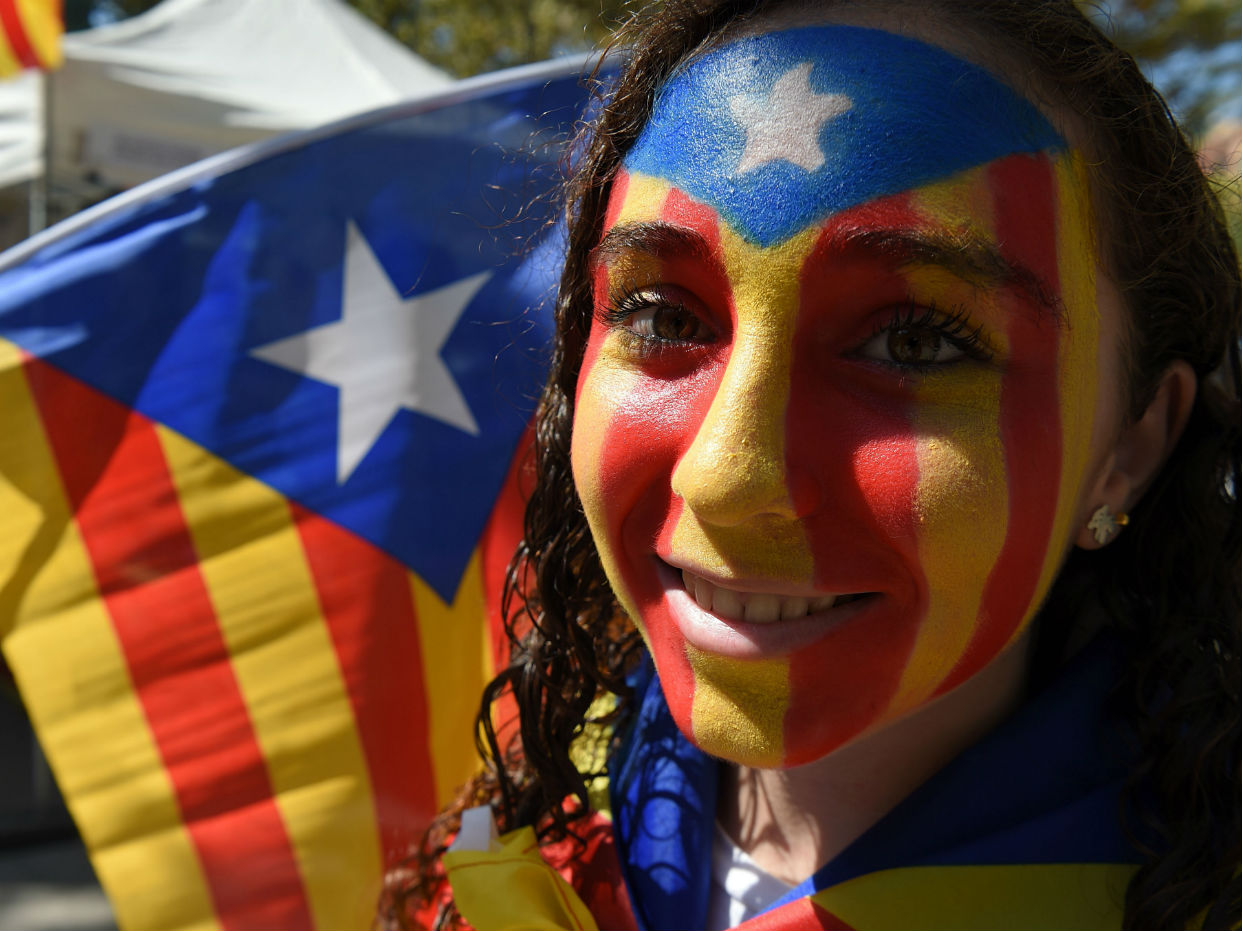What Spain’s political crisis means for Catalan independence
Ousting of tough-talking PM Mariano Rajoy expected to reignite separatist dreams

A free daily email with the biggest news stories of the day – and the best features from TheWeek.com
You are now subscribed
Your newsletter sign-up was successful
Mariano Rajoy has become the first prime minister in Spain’s history to be removed from office after losing a no-confidence motion, plunging the country into political uncertainty.
The motion passed by four votes in the Spanish parliament on Friday, amid a corruption scandal that has plagued Rajoy’s People’s Party. The defeat forced the centre-right Prime Minister to hand over the reins to Pedro Sanchez, leader of the Spanish Socialist Workers’ Party (PSOE).
Sanchez has pledged to hold elections at an unspecified future date, but in the meantime the Catalan crisis will surely be near the top of the interim leader’s to-do list.
The Week
Escape your echo chamber. Get the facts behind the news, plus analysis from multiple perspectives.

Sign up for The Week's Free Newsletters
From our morning news briefing to a weekly Good News Newsletter, get the best of The Week delivered directly to your inbox.
From our morning news briefing to a weekly Good News Newsletter, get the best of The Week delivered directly to your inbox.
What is the situation in Catalonia?
The ousting of Rajoy comes as Catalonia also grapples with political upheaval.
The region’s autonomy has been suspended following the unauthorised independence referendum in October last year.
Deposed leader Carles Puigdemont, currently under arrest in Germany, faces sedition charges if he returns to Spain, and efforts to replace him have sparked further controvery.
A free daily email with the biggest news stories of the day – and the best features from TheWeek.com
On 14 May, almost seven months after Puigdemont fled his homeland, Catalan MPs elected ultra-nationalist firebrand Quim Torra as the region’s new president.
Despite misgivings over his virulent anti-Spanish rhetoric, Torra has “named a cabinet without detained or exiled former ministers, paving the way for Madrid to end its direct rule over the northeastern region”, says news site The Local.
Where does Sanchez stand on Catalonia?
Even at the height of the referendum crisis, Rajoy refused to engage with the possibility of Catalan independence, and it appears that - in spite of their other political differences - Sanchez intends to follow his predecessor’s course.
During a no-confidence debate on Thursday, Sanchez said he hoped for a “dialogue” with the Catalan government, but stressed that any negotiations would have to abide by the Spanish Constitution, which enshrines the “indissoluble unity” of the nation.
However, with just 84 PSOE deputies in Spain’s 350-seat parliament, maintaining that stance may prove difficult.
To pass the no-confidence vote, Sanchez relied on the support of left-wing parties Unidos Podemos and EH Bildu, Catalan nationalists ERC and PDeCAT, and the Basque Nationalist Party (PNV) - all of whom are in favour of self-determination for Catalonia.
As Madrid-based newspaper El Pais says: “Can Sanchez aspire to manage the Catalan crisis from a minority position within his own parliamentary coalition, while a minority within the pro-Constitution bloc itself? It will be difficult.”
Indeed, irrespective of what Sanchez may want to do on the Catalonia issue, the harsh reality is that he may not be able to do anything at all.
As head of a minority government with no popular mandate, the interim PM’s time in office “is unlikely to yield profound changes”, says The Guardian.
-
 The environmental cost of GLP-1s
The environmental cost of GLP-1sThe explainer Producing the drugs is a dirty process
-
 Greenland’s capital becomes ground zero for the country’s diplomatic straits
Greenland’s capital becomes ground zero for the country’s diplomatic straitsIN THE SPOTLIGHT A flurry of new consular activity in Nuuk shows how important Greenland has become to Europeans’ anxiety about American imperialism
-
 ‘This is something that happens all too often’
‘This is something that happens all too often’Instant Opinion Opinion, comment and editorials of the day
-
 Epstein files topple law CEO, roil UK government
Epstein files topple law CEO, roil UK governmentSpeed Read Peter Mandelson, Britain’s former ambassador to the US, is caught up in the scandal
-
 Iran and US prepare to meet after skirmishes
Iran and US prepare to meet after skirmishesSpeed Read The incident comes amid heightened tensions in the Middle East
-
 Israel retrieves final hostage’s body from Gaza
Israel retrieves final hostage’s body from GazaSpeed Read The 24-year-old police officer was killed during the initial Hamas attack
-
 China’s Xi targets top general in growing purge
China’s Xi targets top general in growing purgeSpeed Read Zhang Youxia is being investigated over ‘grave violations’ of the law
-
 Panama and Canada are negotiating over a crucial copper mine
Panama and Canada are negotiating over a crucial copper mineIn the Spotlight Panama is set to make a final decision on the mine this summer
-
 Why Greenland’s natural resources are nearly impossible to mine
Why Greenland’s natural resources are nearly impossible to mineThe Explainer The country’s natural landscape makes the task extremely difficult
-
 Iran cuts internet as protests escalate
Iran cuts internet as protests escalateSpeed Reada Government buildings across the country have been set on fire
-
 US nabs ‘shadow’ tanker claimed by Russia
US nabs ‘shadow’ tanker claimed by RussiaSpeed Read The ship was one of two vessels seized by the US military